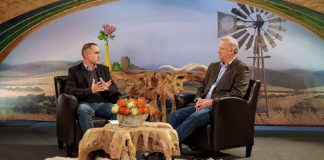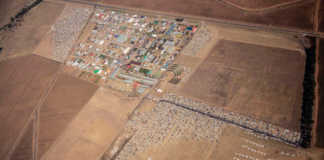Speaking at the official launch of the partnership, WWF-SA’s senior manager for sustainable agriculture, Inge Kotze, emphasised the need for partnerships to address the challenges confronting global food production and the future of South Africa’s food security.
UN Report
A recent UN report entitled ‘Food and Agriculture: The Future of Sustainability’, stated that the world’s farmers need to produce more food per unit of land and water, using less agri-chemicals, while confronting widespread physical resource scarcity, a changing climate and increasing input costs. “These challenges, overlaid with the degradation of our natural ecosystems and biodiversity, make modern day agriculture more precarious than ever,” said Kotze.
Partnership
John Hudson of Nedbank Agriculture said the bank was partnering with the WWF-SA Sustainable Agriculture Programme to support South African environmental and social sustainability initiatives. This kind of partnership played an important role in the maintenance of sustainable agriculture with a reduced impact on the environment and natural resources, he said. Hudson said Nedbank would invest the money over a three-year period.
“Agriculture is considered a growth sector, but growth will place pressure on natural resources. The sector must grow in a sustainable manner. “Sustainability means looking after the land and other resources and meeting the needs of farm workers,” said Hudson. Kotze said there was a need to redefine and refocus the industry’s vision in terms of the future of food and the role of agriculture.
“The Sustainable Agriculture Programme is aimed at better production, rather than focusing only on increased output.”
Kotze said that between 30% and 40% of all food produced is wasted in the agricultural food chain. “Agriculture poses one of the greatest threats to biodiversity. We know that most farmers have a deep connection with their land and since about 80% of land in South Africa is farm land we can have a huge impact on protecting our biodiversity if we can influence farmers to farm in a more sustainable way,” she said.
“Farmers must be approached as the custodians of our natural assets.” The WWF-SA Sustainable Agriculture Programme will look at implementing programmes similar to the WWF’s Biodiversity and Wine Initiative, a partnership between the country’s wine industry and conservation sector, for the fruit, sugar and dairy industries.












